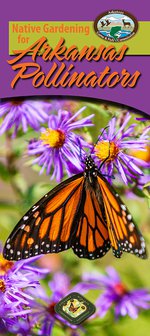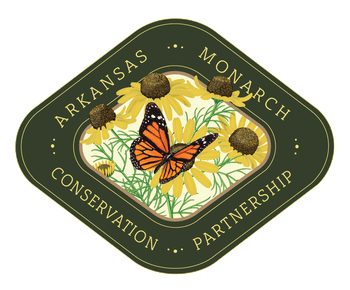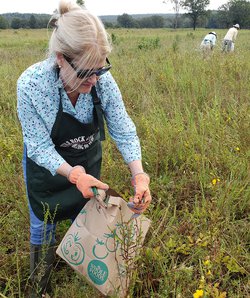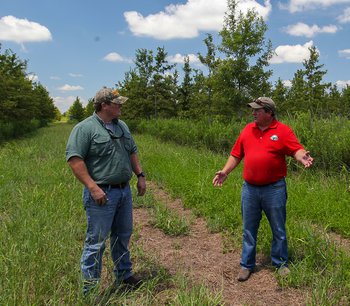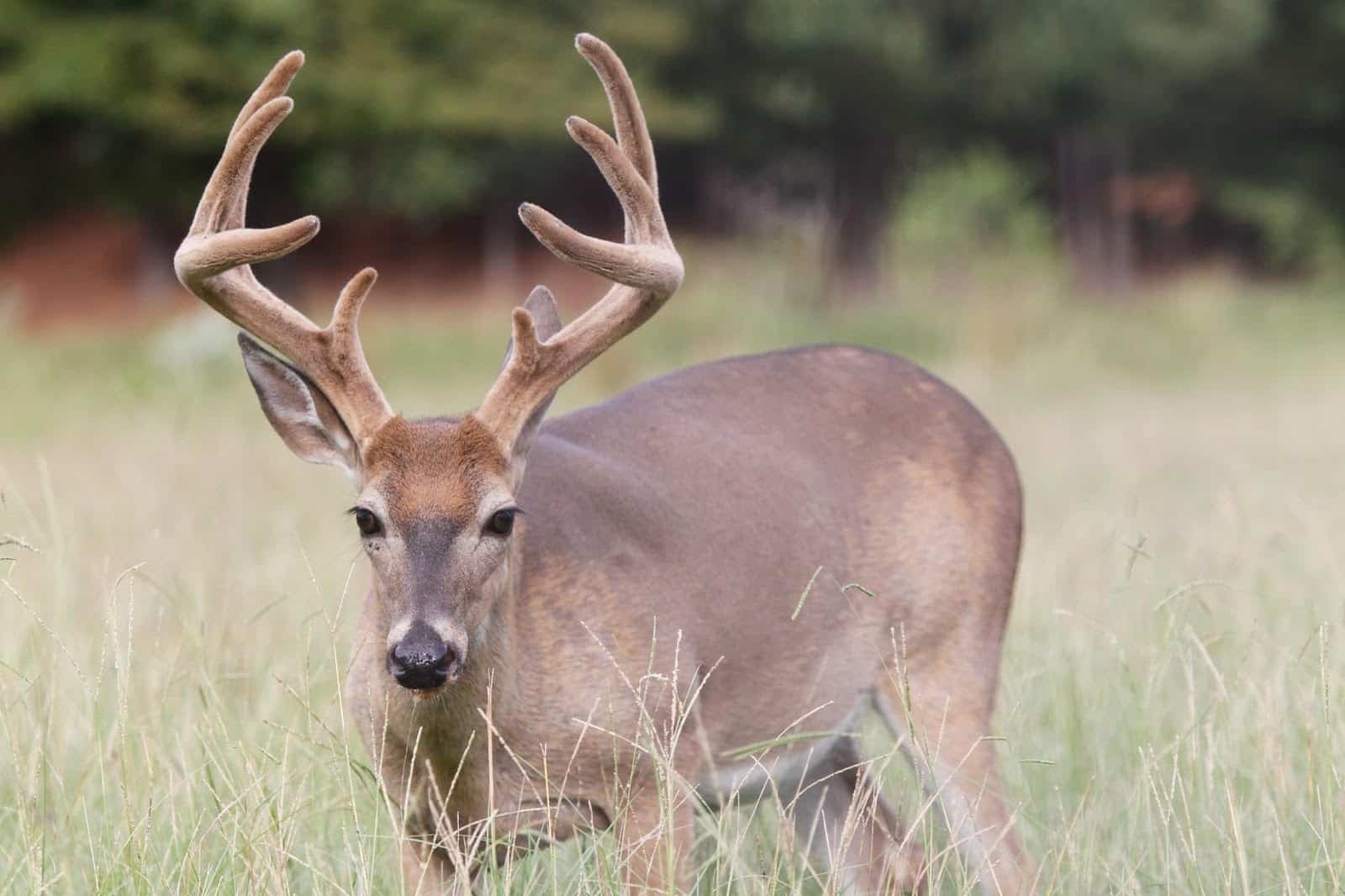’Bee’ a friend to Arkansas’s pollinators
ON 06-23-2021

June 23, 2021
Randy Zellers
Assistant Chief of Communications
LITTLE ROCK — They may be small, but pollinators play a huge role in our daily lives. If it weren’t for the bees, butterflies, bats and birds that tend to wild and agricultural plants, the food supply for humans as well as wildlife would simply stop. Many species of pollinators are seeing declines from changes in land use and certain pesticides. Here are some ways you can celebrate National Pollinator Week this June 21-27 and help reverse the trend.
There’s no denying the attractiveness of a perfectly manicured lawn of Bermuda or Zoysia with flower beds full of exotic flowers, but picture-perfect isn’t always ideal for the insects and other animals you share the land with. A little manicured space is fine, but there are many native species of plants and flowers that can create stunning displays of color just as well as those potted plants you find at the store. Local animal species have adapted to use these plants much more readily than exotics when they are available. In many cases, such as with the Monarch butterfly and milkweeds, a particular species of animal relies on a particular type of native plant to complete its life cycle to create the next generation of pollinators. The Arkansas Game and Fish Commission has worked with the Arkansas Monarch Conservation Partnership to create a brochure on native plants gardeners and homeowners can use to boost the attractiveness of their yards and help pollinator populations throughout the state. Visit to get a free download of “Native Gardening for Arkansas Pollinators,” or call 501-223-6352 to request a copy of this colorful guide to native Arkansas plants.
Simply keeping an eye out for pollinating species and helping track their movements can play a huge role in conservation efforts, and it can be an activity the whole family can enjoy. The iNaturalist website has dozens of surveys for anyone to help in. The AGFC has a current project for monarch butterflies, and many other projects involve bees and other pollinating species. To report your sightings, visit the iNaturalist website and create a free account. Then navigate to the Arkansas Monarch Mapping Project page. Click on the red banner that says “add observations” and complete the information fields. You may also upload a picture, if you have it. If you upload a picture taken with a smartphone, the iNaturalist platform automatically gathers data on when and where the photo was taken.
Some projects, such as those tracking bee species throughout the nation, don’t even require joining the project. Just take a picture with your phone, add the location and the administrators of the project will take it from there. With practically everyone toting a camera and GPS unit in their pocket, there’s a huge potential to get a better understanding of some species’ migration patterns and important areas to focus future conservation efforts. If you find “citizen science” to be your thing, iNaturalist has many other surveys to be a part of.
If you’re wanting to get waist-deep in some work that really makes a difference, you can join up with friends to form a native seed-collecting effort. The AGFC is a participating member of Project Wingspan, which organizes seed-collecting events in Arkansas and through the Midwest and oversees the distribution of collected seed back on the landscape. “The Covey,” a group of conservation-minded members from the Little Rock Garden Club, recently began its second year of gathering native seed for prairie restoration efforts in central Arkansas, and there are many more opportunities for such work throughout The Natural State. Learn more about The Covey’s efforts.
Contact Allison Fowler, AGFC Wildlife Diversity Program biologist, at allison.fowler@agfc.ar.gov to learn more and form your own seed-collecting effort.
If you have larger acreage that you want to manage for the benefit of wildlife, the AGFC has a crew of talented biologists you need to know about. Since nearly 90 percent of Arkansas is privately owned, the AGFC has a group of men and women who dedicate their time to working with landowners to plan and develop their land to benefit game and nongame species. The AGFC’s private lands biologists typically work with landowners to increase the habitat for deer, turkey, quail and many other game species; they’re also knowledgeable about many practices that can increase native forage for pollinating species as well. In most cases, the practices that benefit game species also help a host of non-game animals critical to healthy ecosystems. Not only can these biologists draw up a plan for landowners, free of charge, but they can also help identify possible funding sources through federally funded conservation programs to offset much of the costs associated with habitat enhancements. The AGFC also partners with many other biologists at nonprofit organizations, such as Quail Forever, the National Wild Turkey Federation and Ducks Unlimited to benefit landowners even further. Visit www.agfc.com/habitat for more information on programs offered and contact a private lands biologist near you.
Visit pollinators.org to learn more about how you can help pollinators and celebrate National Pollinator Week.
Recent News
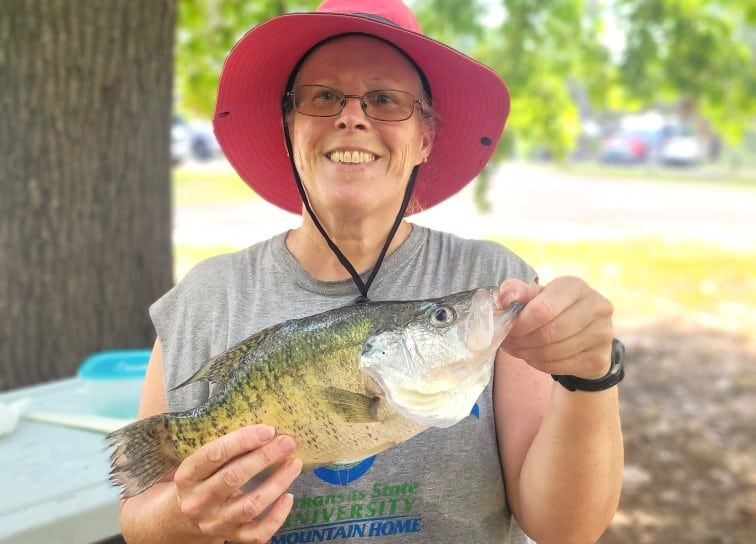
Arkansas Wildlife Weekly Fishing Report
Jul. 25, 2024
Subscribe to Our Weekly Newsletter E-mails
Don’t miss another issue. Sign up now to receive the AGFC Wildlife Weekly Newsletter in your mailbox every Wednesday afternoon (Waterfowl Reports are published weekly during waterfowl season and periodically outside the season). Fishing Reports arrive on Thursdays. Fill in the following fields and hit submit. Thanks, and welcome!

